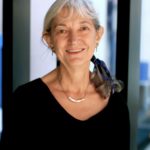Keynote speakers
Keynote speaker 1: Claire Kramsch, University of Berkeley
Language as symbolic power in intercultural education 
Claire J. Kramsch is Emerita Professor of German and Education at the University of California, Berkeley. Born and educated in France as a teacher of German language and literature, Professor Kramsch later moved to the United States, where she taught German at M.I.T, and Applied Linguistics at Cornell University and UC Berkeley. She has written numerous books and articles on language and culture, multilingualism, applied linguistic theory and the teaching and learning of foreign languages. She has received numerous awards, such as in 1998 the Goethe Medal for promoting intercultural understanding between the United States and Europe. She is the past president of the International Association of Applied Linguistics. Her latest book is Language as symbolic power to be published next summer by Cambridge University Press.
Keynote speaker 2: Yiyi López Gándara, University of Seville
 Critical approaches to language education: TEFL at the intersection of power struggle and identity building
Critical approaches to language education: TEFL at the intersection of power struggle and identity buildingYiyi López Gándara is a Lecturer at the Department of Language Education of the University of Seville. She trains both primary and secondary school language teachers, and lectures on TEFL and research in language education. Her research focuses on the field of bilingual education, where she has published on the use of digital resources and materials inside and outside the bilingual classroom and the effect of CLIL programmes on L1 competence development. Other research interests include critical approaches to language education and learner empowerment. She is currently engaged in a research project funded by the Spanish Ministry of Education on the literacy practices of young learners in deprived urban areas.
Keynote speaker 3: Juan Ramón Guijarro Ojeda, University of Granada
 An Autoethnographic approach to teacher wellbeing: sexual politics in foreign language
An Autoethnographic approach to teacher wellbeing: sexual politics in foreign language 
Fiona English is Honorary Senior Research Associate in the Centre for Applied Linguistics at the UCL Institute of Education in London, where she received her PhD. Like many people involved in TESOL, her career has moved from language school based ELT into teacher training, research and finally academia. She set up the Learning and Teaching Unit at the London School of Oriental and African Studies where she developed programmes in EAP, Academic Literacies and Higher Education learning and teaching, but after twelve years, took up a lectureship at London Metropolitan University, becoming course leader for the MA in TESOL and Applied Linguistics. She has published articles, chapters and books on the different areas of her expertise (genre, academic literacies and even forensic linguistics) as well as her work in TESOL. She is the author of Student Writing and Genre (2011) and, with Tim Marr, Why Do Linguistics? (2015) and Rethinking TESOL in Diverse Global Settings (2019).
